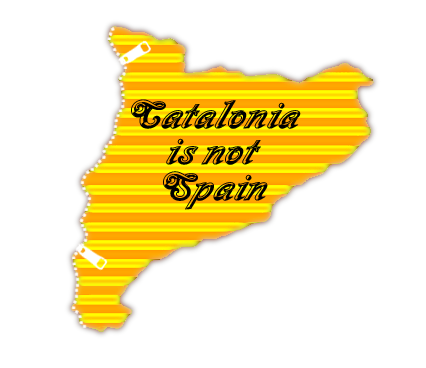Separatist sentiment in Catalonia has existed since long time ago. However, it appears that the determination to gain independence from Spain has persisted and grown stronger ever since the death of Francisco Franco in 1975. As part of Spain, Catalonia is one of the richest regions with its own distinct culture and language. Despite autonomy given by the central government in Madrid, there is a push for a full independence for the region.
1st October 2017 is the date of an independence referendum in which the regional government of Catalonia spearheaded by Carles Puigdemontis pushing for. The central government meanwhile is declaring that this referendum is “illegal”, and is determined to put a stop to it. The referendum asks the people of Catalonia whether or not they support its independence in the form of a republic. To understand how it gets to this point we need to briefly look at Spain’s constitution and history.
read Europe’s national security dilemma: Who is crossing the line?
Catalonia and Its Relation with Madrid
The War of Spanish Succession in 1714 resulted in Catalonia losing its independence by choosing the losing side of the conflict. Power was ceded to Spain and its central government in Madrid. The region has enjoyed a short period of autonomy from 1932 until 1938 when General Francisco Franco supported by Hitler’s Nazi Germany and Mussolini’s Fascist Italy defeated the Republican government. Catalonia lost its autonomy once more under his dictatorship. Franco’s death in 1975 opened a new era in Spain as the country returns to democracy. With democracy comes a new constitution of 1978 which gives wide autonomy to the region with 90% of Catalans voted in favor of it.
A Region of Distinction
Catalonia has a population of 7.5 million people. It accounts for 20% of Spain’s GDP. With such economic importance at stake, any secession from Spain would be disastrous for the country considering the fact that Spain is in the state of recovery from 2009 bubble burst of its real estate market.
Catalonia was the first region of Spain to be industrialized. Industrialization, therefore, pushed forward a cultural renaissance. It draws workers from poorer parts of Spain and has maintained its economic position ever since. At the same time, the region has its own language and culture. The separatist movement claims that Catalonia has been stripped of its heritage. This may also be fueled by the fact that Catalans see themselves as more advanced than the rest of Spain. This sense of prestige is rather a sense of insecurity because it is clear that Catalonia is not the only rich region of the country.
Pro-independent groups have said that Catalonia has paid more in tax to Madrid than it gets back from the federal government. The crisis of 2009 saw a recession in the country. Catalonia and other richer regions of Spain are important in putting the economy back on track. Yet, some feel that this has become a burden for them. They believe that Catalonia would be better off should it get control of its tax money. They also claim that the attempt of the government to close the wealth gap between rich and poor regions have pushed Catalonia to the point at which essential services are not properly maintained.Redistribution of wealth has, therefore, put pressure on its pocket.
read Russia and Turkey’s complex allies
The Political Situation
The Generalist, as the Catalan government is known, is calling for a referendum of independence on 1st October. This referendum is rather unilateral since it does not have the consent of either the central government in Madrid or constitutional court. CarlesPuigdemont is using popular mobilization to his advantage by claiming his mandate for an independent Catalonia. He has said that should the Yes vote wins, Catalonia would declare independence within 48 hours.
Spanish constitution of 1978 gives autonomy to the region with a clear affirmation of the unity of the Spanish state. Therefore, Puigdemont’s call for the referendum is illegal by itself. To secede Spanish parliament needs to change the constitution which is incredibly unlikely.
The central government in Madrid under the leadership of conservative Prime Minister Mariano Rajoy is determined to stop it. With his recent visit to the United States, he has the support of Donald Trump in maintaining Spain’s integrity against separatism. He has also enjoyed the support of the courts. Along with the arrest of Catalan officials as well as the seizure of ballot boxes and other voting materials, CarlesPuigdemont and his colleagues are facing a possible prison sentence.
Spain’s neighboring countries have so far remained silent in this issue. Is it possible that they do not support Catalonia’s independence? There are a number of questions if this region gets what it wants. Will Catalonia have an army? Will it join the European Union? Will it join NATO? What currency will it use?
What Should We Look Up To?
Since this unilateral referendum is not constitutionally binding, it is hard to see the result as anything more than a political leverage of Catalonia against Madrid. Separatist sentiment has existed in the region for a very long time. This referendum is just an event in a series of long-standing desire to be a nation. It is certain that if Spain is not cautious and act strategically, Catalonia would become an independent country in the distant future. With so many things at stake, Europe, as we know, could also be affected. Whatever the outcome, the price will be high.
Puthyraksmey Yama
Marmara University, Istanbul, Turkey
Department of Political Science and International Relations
